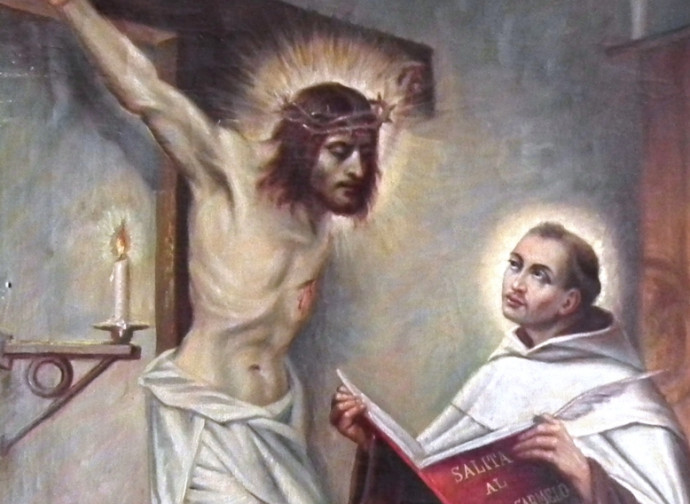Saint John of the Cross
“The saintliest of poets and the most poetic of saints” not only gave us an illuminating mystical doctrine, but at the same time he was a very concrete man, who supported Saint Teresa of Avila in the reform of Carmel

St. John of the Cross (1542-1591) is recognized as “the saintliest of poets and the most poetic of saints” (as the Spanish poet Antonio Machado called him) and called Doctor Mysticus. He not only gave us an illuminating mystical doctrine, in which he presents a sure path towards holiness, but at the same time he was a very concrete man, who supported Saint Teresa of Avila in the reform of Carmel. To attend to the reformed convents he walked thousands of kilometers. His adherence to Teresa's reformist drive, aimed at bringing Carmel back to strict observance of the original rule in order to foster recollection with God, caused him enormous suffering. But the trials forged him and helped him along the path of holiness because, he wrote, “you will not find what you desire or most yearn for either by this path of yours or by that of high contemplation, but in a great humility and submission of heart.”
Born in a village in Castile, he grew up in a family that was very poor because his father, of whom he was orphaned in childhood, had been disinherited for marrying a humble weaver. To help his mother, John worked at a variety of small jobs during his adolescence, until he entered the Jesuit College of Medina del Campo, where he studied humanities and classical languages. The vocation that was formed in him led him in 1563 to begin the novitiate in the Carmel of the city. He then began studying theology and philosophy at the University of Salamanca and became a priest, but at that stage his disturbance over the softening of the Carmelite led him to consider entering the Carthusians.
In 1567 there was the meeting with Teresa of Avila (1515-1582), who while carrying out the reform of the women’s branch of Carmel presented to John her ideas for the men’s branch and asked him for help “for the greater glory of God.” It was a turning point for both. John enthusiastically joined Teresa's project, who in turn benefited from the depth of the young Carmelite who became her spiritual director, as she herself wrote: “It was so good that I was the one who had to learn from him much more than I could teach him.” From the union of their charisms, the first convent of the Discalced Carmelites was born a year later and it was then that the saint took the name of John of the Cross. Even for the men’s branch, conflicts soon arose with the “calced,” who continued to follow the attenuated rule and in 1577 went so far as to imprison John for an unjust accusation. He remained imprisoned for eight months, undergoing physical and moral humiliation, before he managed to escape.
It was precisely in prison that he wrote various poems, and above all the Spiritual Canticle, which he later commented on verse by verse, describing how the path of purification of the soul leads to the joy of “possession of God,” a term at the heart of John's mysticism and something that the soul can experience only when it comes to love God in the way it is loved by Him. Which is possible only by espousing His will.
In other famous works, the Ascent of Mount Carmel and the Dark Night, he explains that the soul can reach the heights of perfection by being purified through what he calls “dark nights”: first of all the “night of the senses,” which consists in the renunciation of temporal things and passions contrary to God, the Supreme Good; and then the “night of the spirit”, an inner despoiling, the most difficult phase of the climb that the soul can make with the three theological virtues: faith, hope and charity, which purify the intellect, the memory and the will.
In this ascent towards God - which John, proclaimed a doctor of the Church by Pius XI, symbolizes with the summit of Carmel - the soul must certainly strive, but at the same time it must be aware that it will be the grace of the Holy Spirit that will help it rise, provided that there is an inner disposition to open up to the divine action, which can act through trials of purification. His is a mysticism entirely based on the Trinitarian mystery and on the Incarnation of Christ: “The Father spoke a Word, which was his Son, and repeats it continually in an eternal silence. Therefore in silence must it be listened to by the soul.”
Patron of: Spanish-language poets, mystics
For more information:
Spiritual Canticle, Flame of Living Love, Dark Night, Ascent of Mount Carmel, by Saint John of the Cross
Master in the Faith (apostolic letter of John Paul II for the fourth centenary of his death)
Catechesis of Benedict XVI (general audience of February 16, 2011)
